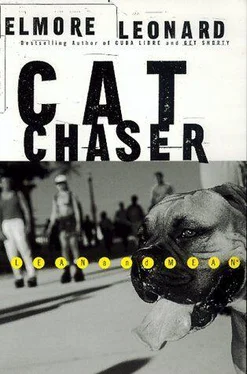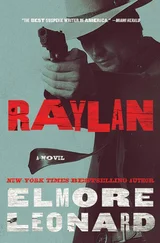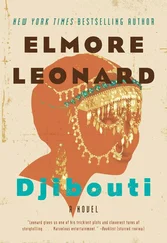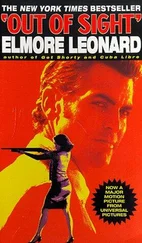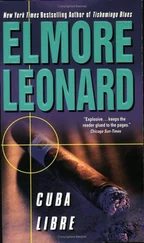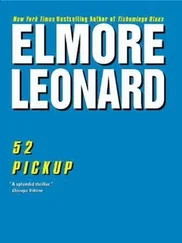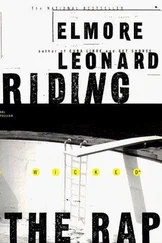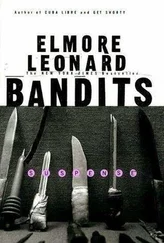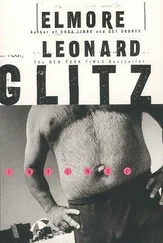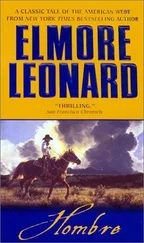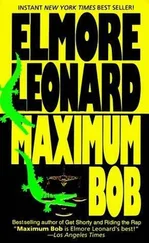“Who is it doesn’t trust me?”
“Well, Jiggs Scully wants to know-as Jiggs says, ‘Tell me. Your buddy Moran, he working over in Coral Gables at the Holiday Inn there?’ “ Nolen raised his eyes, holding the beer can at his chin. “Sound like him?”
“That’s very good,” Moran said. “What’s he following me for?”
“He isn’t following you, he’s following de Boya’s wife. He sees her go in the Holiday Inn, he sees you go in the Holiday Inn. She comes out, you come out. Scully wants to know if it’s a coincidence or what. He doesn’t know what to tell de Boya.”
Moran stared at Nolen for a moment, Nolen waiting with the sly look, then went to the kitchen and poured himself a scotch with one ice cube. He stood at the counter now looking across the width of the room at Nolen.
“Scully says he’d rather talk to you than de Boya. He doesn’t like de Boya.”
“How much does he want?”
“He’s not shaking you down, he wants to talk.”
“About what?”
“He’s an interesting guy. I think you ought to listen what he has to say.”
“Yeah, about what?”
“I’m not at liberty. At this point it’s strictly between you and him.”
“How long’s he been following Mrs. de Boya?”
Nolen grinned. “We’re very formal, aren’t we? I knew something was going on. Back when the guy’s sister was shacking up with the piano player-the way you mentioned de Boya’s wife, like she was up for canonization, and all the time the old Cat Chaser’s meeting her on the side. Jiggs says you have to have very large balls fool around with the wife of a guy like de Boya. He says you mention Andres de Boya to people that know anything about him it shrivels their balls right up.”
Moran sipped his drink.
Nolen was comfortable, having a good time.
“You’re not saying, uh? Well, I don’t blame you. Afraid you’ll get your laundry scattered all over. But I think you should talk to him, Jiggs. It might be, you find out it’s in your best interest.”
Nolen wouldn’t say any more than that.
Pulling into the Holiday Inn the next day, driving around to the side, to 167 at the rear of the building, Moran didn’t see Jiggs Scully’s two-tone red and white Cadillac or anyone sitting alone in the few cars that were parked here. He pulled in next to Mary’s Mercedes, both cars white, his old Mercedes next to hers giving a before-and-after impression. He hadn’t decided how much to tell her.
And for a while it wouldn’t have mattered if de Boya himself were parked outside; they were together and there wasn’t anything else, only faint street sounds they might have heard but were removed and had nothing to do with them. They lingered, making it last, until the present began to seep back and sounds outside became images of two-tone Cadillacs and limousines; with awareness came apprehension, waiting for something to happen.
She said, “What’s the matter?” When he didn’t answer she said, “We don’t have to do this.”
“Yeah, we do,” Moran said. “We’re way past that. We could say we’re not gonna see each other, but we would.”
She said, “He hasn’t mentioned you since the day we got back. I’ve been rehearsing my lines, I’m almost ready to corner him.” Her tone softened. “I’m not dragging my feet, I’m just scared.”
He said, “I know.”
She said, “You’re off somewhere.”
“No, I’m here. I’m resting.”
“Tell me what’s going on.”
She wanted to know about Loret. He told her the story again in detail and the parts that bothered him: the twelve years difference between Luci and Loret, no mention of brothers and sisters in between; that wasn’t a Dominican family. The revolutionary party Luci joined; he didn’t believe it existed; the political situation there had been quiet for years. And the way Rafi put words in her mouth, prompted so she wouldn’t forget anything.
Mary said, “And are they having fun at the Coconuts?”
He had put them up in oceanfront Number One and Number Two. He told Mary that Jerry said he was crazy, giving them a free ride and now he’d have to get Lula in to clean. Jerry called them “boat people,” like the Cubans from Mariel; pretty soon they’d be taking over.
Mary said, “Bighearted George. Well, as long as you know what you’re doing.”
“But I don’t,” Moran said. “I’m not sure what’s going on. But he makes a pitch I can always say no, right?”
“I don’t know, George. Can you? You know they want something, but you’re still moved.”
The afternoon went too fast; it always did. Mary slipped into her warmups. They said goodbye, holding onto each other for several minutes and almost went back to bed. Moran waited then by the door as Mary got in her car and drove off. Still no sign of a two-tone Cadillac.
Moran got in his car and drove out toward the front of the Holiday Inn. He saw Mary’s car turn south onto Le Jeune. Then saw a familiar car come out from the portico in front of the building, out of the shade, and turn onto the street after her. An older-model, faded blue Porsche. Nolen Tyner’s car.
Moran followed, seeing faint bursts of colorless smoke coming out of the Porsche’s tailpipe as it accelerated. There was no doubt in his mind it was Nolen. He hung back, keeping the oil burner in sight, then caught the light at Miracle Mile and had to sit there as both cars continued on, disappearing in the southbound traffic.
He took his time now, worked his way over to Granada and followed the road through Coral Gables to the country club to see if she might have turned in there; but there was no sign of either car. He passed the street where he had lived for seven years, drove through caverns of tropical trees to streets that branched off into fingers of coastal land, the houses built on a network of free-form canals and hidden by walls of stone and vegetation, stands of sea grape, hibiscus, jungles of orchids and acacia trees. He came to Arvida Parkway and rolled slowly through the gloom of foliage, catching flashes of Biscayne Bay in the late afternoon sunlight.
The de Boya home stood on a spur of land that curved out a few hundred feet into the bay, the peak of its roof ascending steeply against the sky like a tor, a landmark from the bayside but from inland only glimpses of bleached wood and glass. Moran had called it Polynesian contemporary, the home of a South Seas potentate. Mary said, “If not a very successful cocaine dealer.” She called it bastard modern, neo-nondescript. The entire house, she said, could only be seen from the dock at the edge of the front lawn. Otherwise, and especially from the road, only an idea of its astonishing angles could be seen beyond the iron pickets mounted to the low cement wall and through the forest of poinciana and acacia that sealed off the front of the property.
Stone columns marked an entrance to number 700. The driveway circled into the trees and came out again at another pair of columns up the road, without revealing the front of the house or cars that might be parked there.
All he could do was assume Mary was home now and Nolen had passed this way a few minutes ago. What would happen if he pulled into the driveway? What was he doing there if de Boya came out?
Moran took the freeway north out of Miami thinking of the afternoon motel room and the warm awareness in Mary’s eyes as she called him bighearted George, touching him, understanding him. Good, that part was good. But his own image of a bighearted George was not the bearded guy in the motel room. Or the cement-finisher working in the sun. Or the fire-team leader in the narrow streets of Santo Domingo. Not the fantasized seventeen-year-old lover either. The bighearted George he saw in his own mind was a dreamer, the ideal dumb-guy mark. He caught every light in Pompano Beach going toward the ocean and the bridge raised across the Intracoastal; it was all right, he was patient now as he realized he was out of patience, tired of waiting, accepting, listening to people like Rafi and Nolen, with their angles.
Читать дальше
